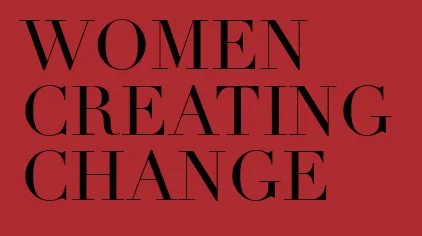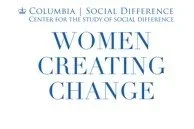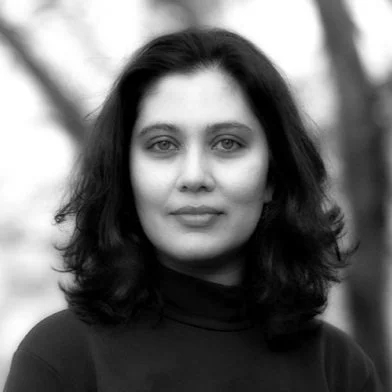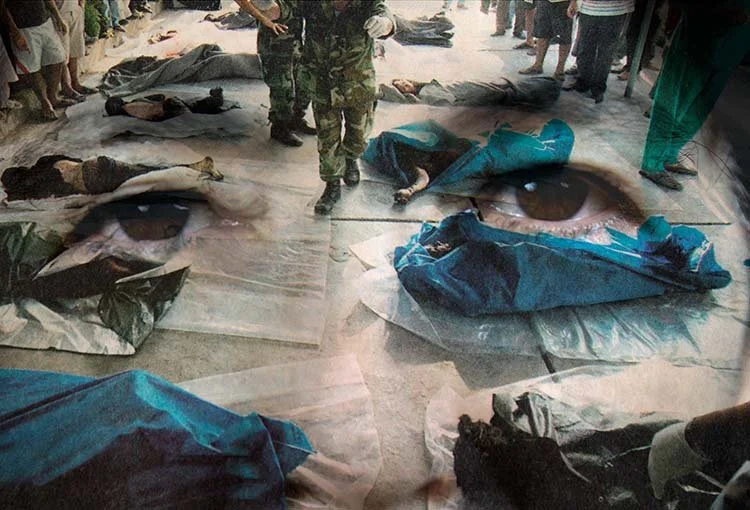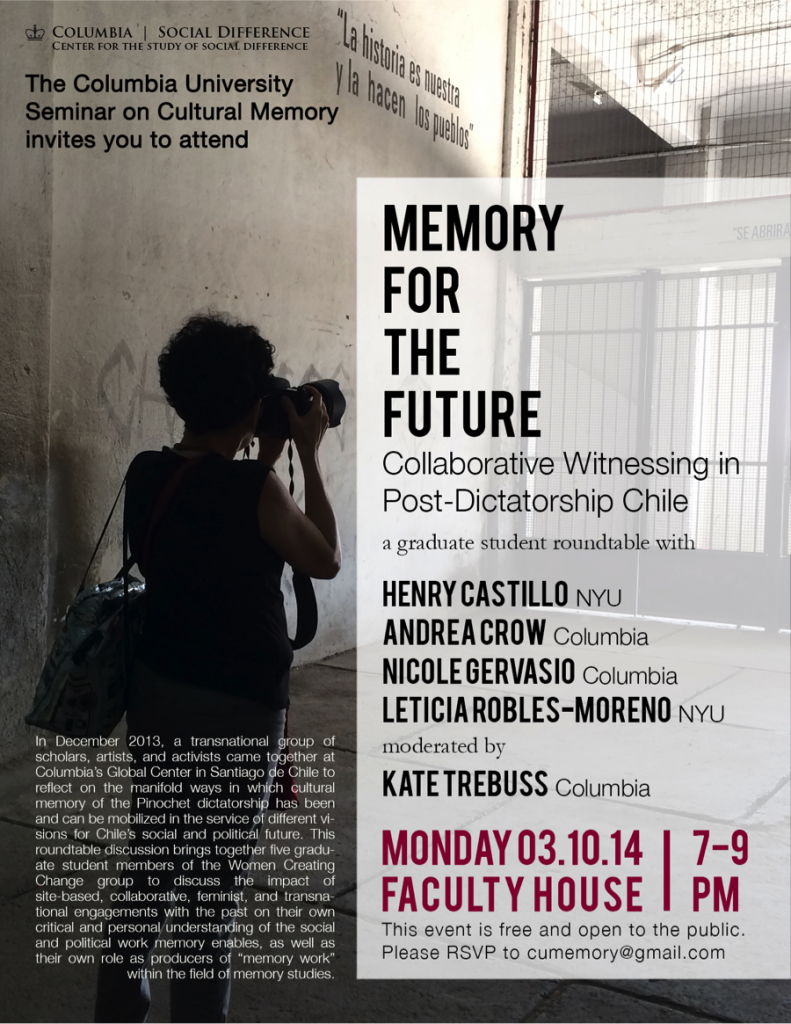On May 3 and 4, 2014, the Columbia Global Center | Middle East in Amman hosted a workshop entitled “Debating the “Woman Question” in the New Middle East: Women’s Rights, Citizenship, and Social Justice.” The workshop was part of a larger project on “Gender, Religion, and Law in Muslim Societies” of Women Creating Change, an initiative at Columbia University’s Center for the Study of Social Difference. Lila Abu-Lughod (Columbia University), director of the WCC project, co-organized it with Safwan Masri (Director of Columbia Global Centers), Amal Ghandour (Special Advisor to the Global Center in Amman), and Hoda El Sadda (Cairo University) with funding from Women Creating Change, the Blinken European Institute, and the Columbia Global Center | Middle East in Amman.
The aim of the two-day workshop was to bring together scholars and practitioners with expertise in the field of women’s rights and development to assess the impact of the Arab uprisings and their aftermaths and to take stock of emerging debates in the Arab world about women’s rights, citizenship, and prospects for justice. The international group of 20 participants came from five countries in the region as well as the US and UK. All had ongoing research and practical experience in the Arab world. It was particularly exciting to hold the discussions in Amman, Jordan, as we could draw in a strong contingent of Jordan-based participants with insights into the dynamics of local feminist debates
The intent of bringing together these interdisciplinary experts from the region was to move beyond superficial culturalist explanations that are popular in the West—attributing women’s status and prospects, for example, to the constraints of Arab culture or Islam—while also critically examining a tendency in the Arab world either to view women’s rights as mere tools of cultural imperialism or to imagine a simple opposition between women’s rights and Islam. These scholars and practitioners were knowledgeable about the many ways in which Arab women have been engaged in political activity, whether through street protests, human rights groups, feminist projects of legal reform and empowerment, or in the everyday contexts in which political contests have been occurring and Islamic parties and discourses have gained strength and legitimacy.
Three themes organized the discussions: the role of political economy and colonial processes in shaping gendered lives, bodies, and politics; the effectiveness of legal strategies for citizenship and justice, particularly for women; and the impact of Islamist governance and the rise of Islamic feminisms on women’s lives and rights.
Political Economy and Embodied Lives
Nicola Pratt argued for the importance of political economy in structuring gender relations in Egypt both prior to and after 2011, showing how the withdrawal of the state from key social services has put more pressure on the family as an economic unit. Consequently, women bear the heavy “double burden” of wage work and household labor while young people have been trapped in long periods of “waithood,” unable to marry and start families of their own. In turn, these dynamics have created a disjuncture between the roles that both men and women are expected to play (breadwinner, home-maker) and what they can actually accomplish, whether in the workplace, the family, or the home. This disjuncture, Pratt argues, is critical to understanding the 2011 uprising in Egypt and its gendered aftermath as different strategies for stabilizing gender relations have emerged: one, represented by the Muslim Brotherhood, has responded to economic hardship with promises to restore the “ideal family” by promoting conservative gender norms, while the other, represented by young activists (many of whom are women), has insisted on the continued presence of women in the public sphere.
Sara Ababneh joined Pratt in arguing that questions about political economy should be central not only to our analyses of world-historical events like the Arab uprisings, but also to our political interventions. By highlighting a lack of overlap and solidarity between Jordan’s feminist movement and the women and men of the day-waged labor movement, the hirak sha’bi, Ababneh asked us to consider how an exclusive focus on “women’s issues” has prevented middle-class Jordanian feminists from hearing or supporting the demands expressed by both men and women in the hirak sha’bi for a minimum wage, paid holidays, and job security. Her observations about the disjuncture between mainstream Jordanian women’s NGOs and the day-waged laborers raised the crucial question that would run throughout the discussions at the workshop: feminism’s potential exclusions. How might a politics structured around “women’s rights” exclude or render unintelligible concerns about livelihoods and economic wellbeing shared by both women and men? How could feminists in Arab countries, as elsewhere, not be blinded by their class origins and easy turn to the political rather than the economic? Jordanian feminist Hala Ghosheh built on these concerns and on Ababneh’s reflections to pose another difficult question: had some feminist organizations in Arab countries been made complacent and ineffective not only by deep investments in the economic status quo, but also by their close relationships with ruling regimes? Might traditional feminist projects rooted in the middle class and sanctioned by ruling elites be usefully complemented, or replaced, by a more grassroots approach?
If Pratt and Ababneh argued that political-economic concerns should be central to our modes of analysis and political interventions, Nadera Shalhoub-Kevorkian showed how sedimented histories of legal and political as well as economic oppression continue to structure the intimate lives of Palestinian men and women. Her focus was the gendered yet deeply politicized processes of pregnancy and giving birth in occupied East Jerusalem. Her paper showed the importance of looking “across historical tenses,” as she linked the legal categorization of Palestinian women who returned home after 1948 as “infiltrators” to the current challenges faced by pregnant Palestinian women who must navigate contested political spaces and borders to ensure legal that their children receive legal recognition from a hostile Israeli state. More importantly, Shalhoub-Kevorkian reminded us that it is in the most intimate spaces of (gendered) life and mobility that we can see how histories of injustice and oppression shape women’s embodied lives.
In their papers, Frances Hasso and Zakia Salime reinforced the value of this other dimension of the material: “the gendered body” as an analytic for understanding contemporary dynamics and transformations in the Middle East. For Hasso, gendered and sexualized bodies and the spaces through which they move (or are prevented from moving) offer a productive lens for thinking through the 2011 uprisings in Egypt. These uprisings featured diverse and mutable actors and constituencies (for example, “the people,” or al-sha’b) rather than the unified entities that have been central to traditional historical and sociological analysis (for example, “the working class”, “the army” or “the state”). Building on Jacques Ranciere’s concepts of “politics” and “police,” Hasso argued that only by thinking about specific gendered bodies and the particular contours of revolutionary spaces (think, for example, of Tahrir square) can we begin to understand Egypt’s 2011 uprising and its aftermath. In particular, it is critical to think about gendered bodies and their specific positioning vis à vis shifting relations of power to see how even “revolutionary” or emancipatory forms of politics may continue to enact hierarchies and exclusions, with detrimental implications for women and others who inhabit bodies that get marked as “other.”
For Zakia Salime, as for Hasso, attention to the gendered bodies of ordinary women enables us to think about how women have influenced, participated in, and lived through this particular moment in the Arab world. Salime focused on two provocative examples from Morocco--the self-immolation of Fadwa Laroui in 2011 and the suicide of Amina Filali in 2012-- to argue that ordinary women who are not always represented by mainstream feminist groups are turning to embodied acts like self-immolation and suicide to “express a sense of self-worth and rights,” and to intervene politically in contexts which sometimes take women’s political representation seriously but fail to meet the demands and desires of ordinary women. For Salime, Laroui’s videotaping and first-person narration of her own self-immolation suggested a desire to produce her death as spectacle, to use her body to draw attention to the impossible circumstances of single mothers in Morocco and inspire others to “take a stand against injustice, corruption, and tyranny.” Laroui’s act, however, did not spark the same controversy as the death of Amina Filali, who committed suicide after being forced to marry her rapist in March of 2012. This proves that positionality still matters even as “ordinary women” take matters into their own hands: the death of Laroui, a working-class single mother whose concerns were about livelihood and social welfare, received much less attention than Filali’s, which fit into dominant international narratives about female “victims” of male aggression and of patriarchal “Islamic law.” Salime also countered this narrative about Filali as a “victim” of patriarchy and Islam, suggesting instead that her death might have been made possible in part by the erosion, under neoliberalism, of traditional “patriarchial” structures that served to protect women in the past.
A key debate that emerged from these analyses of history, the body, and political economy was about the significance and meanings of gender as a category of analysis and a focus of activism. While Pratt and Shalhoub-Kevorkian’s work, for example, suggested the inextricability of gender from historical and contemporary structures of political-economic oppression, Ababneh’s reflections on the gap between middle-class Jordanian feminists and the women and men working on questions of livelihood in the hirak sha’bi reminded us that using gender as the primary scholarly analytic or political focus might preclude broader solidarities and also render invisible or unintelligible important struggles that do not articulate themselves in gendered terms. Leila Hilal’s suggestion that women in particular have great potential as peacemakers in contemporary Syria compelled participants to ask how and under what circumstances gender should serve as a dominant lens for conceptualizing political possibilities and action.
Hasso suggested that an analytic focused on gendered and sexualized bodies and spaces might offer us a way of thinking not only about women but also about men, while Salime argued that larger social problems and dynamics are mediated through women’s bodies in particular ways. The conclusion was that lived material conditions and the histories and structures of oppression impact intimate lives and embodied realities, which are indeed gendered. How to conceptualize political transformations and dynamics, including those of class and ethnicity, by thinking through intimate, everyday life and the gendered body emerged as crucial arenas for future scholarly and political work on women in the Middle East.
The Effectiveness of Legal Strategies
The second of the workshop’s organizing themes centered on how effective for women were legal strategies for citizenship and justice. While all agreed that the law has been a central arena for feminist intervention in the Arab world, as elsewhere, tough questions arose about the roles law does and should play in future feminist politics and practice. In the case of Palestine, Reem al-Botmeh noted the depoliticization and NGO-ization of the Palestinian civil sphere that has accompanied the rise of legal reform as central to Palestinian governance and gender advocacy. In her view, this focus on the law has obscured the difficult political work which remains to be done both for women in Palestine and for Palestine in general. She also reminded us that the law does not always do the work it claims to do, particularly for women. Her research showed that while the shift from shari’a (personal status) courts to civil courts in Palestine was presented as a triumph for women’s rights, in practice it has made it more difficult for women to access justice in the courts; the civil legal apparatus has proven both more rigid than that of the shari’a courts and more dependent on expensive legal expertise that poor women cannot afford.
Likewise, Susanna Ferguson argued that the invocation of human rights and international law as a primary language of justice by feminists in Syria had both emancipatory and disciplinary effects. While articulating feminist claims and political desires in the legalistic language of rights promises to give citizens a framework within which to demand new freedoms from the state, these invocations of rights also structure the subjectivities of those who speak in their name, creating new silences and exclusions. In pre-uprising Syria, making claims in the language of rights produced subjects who had a faith in modernity and progress and an aversion to tradition. Confident in the promises of the nation and the universals represented by international conventions, they distanced themselves from what was deemed “religious” in favor of what was considered “secular.” These convictions may have prevented advocates of “women’s rights” from engaging with women across the country who did not share these certainties.
At the same time, many contributors re-affirmed the power of the law to serve as a vehicle for women’s empowerment. Marwa Sharafeldin argued that in the case of the 2006-2010 campaign to reform Egypt’s Personal Status Law, both human rights law and Islamic law served as important resources for women’s NGOs. The way in which these NGOs appropriated concepts from both legal discourses to support their reform agenda revealed the potential for creative and syncretic political platforms that draw strength from multiple legal traditions. Activists were able to turn to the law (in various forms) to respond to the challenges they observed Egyptian women facing in their daily lives.
Nabila Hamza and Hoda El Sadda followed Sharafeldin in arguing even more firmly that law is key resource for women. Hamza argued that in the case of post-revolution Tunisia, international human rights law served as a crucial resource for feminist activists as they helped to draft a new constitution. In particular, it enabled them to remove any references to shari’a law from the 2014 Tunisian constitution and to push for an article that pledges that the state will seek to guarantee parity among men and women in elected councils, protect women’s rights, and take measures to eliminate violence against women. Likewise, El Sadda, a feminist scholar and activist who was on the 50-person committee tasked with writing a new constitution for Egypt in 2014, described how she was able to form coalitions with other power brokers during the drafting of the new constitution by appealing to the law and to a language of rights. Acutely aware of the compromises and shortcomings of the process, she nevertheless was convinced that the law in this instance was both an important tool and a critical arena in which feminists were able to engage with existing structures of power to further a feminist political agenda.
A wide variety of perspectives emerged about the role the law and the framework of women’s rights should play in future scholarship and political work.
Islamic Governance and Islamic Feminisms
A third theme of the workshop was the impact of Islamist governance and the rise of Islamic feminisms on women’s lives and rights in the region. Yara Sallam from the Egyptian Initiative for Personal Rights (EIPR) argued that because they had decided not to engage with legal or political questions emanating from interpretations of Islam, secular women’s NGOs in Egypt after the 2011 uprisings were unprepared to contest the agenda put forward by ex-President Mohammed Morsi and the Muslim Brotherhood. She suggested that women’s NGOs needed to be able to engage more effectively with political Islam on a policy level, rather than leaving the field of interpreting Islam to Islamist parties and the women and men who belong to them. Marwa Sharefeldin, speaking as a scholar and a member of Musawah, pointed out that there is a stronger alliance now than there was in 2012 between feminists making arguments in Islamic terms and women’s NGOs.
Merieme Yafout, however, reminded us not to lump together the women who belong to “Islamist parties” either across the region or within individual countries. Opinions about correct interpretations of Islam and the shari’a, as well as the best forms of political engagement, vary widely among women who belong to the region’s many Islamist parties. Serious contestations are taking place among men and women within the sphere of political Islam about correct interpretations and ways to proceed. Yet, Yafout’s research in Morocco and Tunisia showed that the 2011 uprisings have ushered in a new phase in which women are taking on more public roles in Islamist political parties.
Like Yafout, Asef Bayat argued that the 2011 uprisings and women’s very public participation in them have released new energies and opened up new possibilities and challenges in the Middle East. While, in his view, the presence of women in the public sphere was central to de-exceptionalizing and broadening the uprisings, many women have also faced new kinds of violent backlash against their presence in the public sphere. Nevertheless, this revolutionary moment in which so many conflicting tendencies have found free expression may have opened up further possibilities for the emergence of what Bayat termed a “post-Islamist” polity, which favors a non-religious secular state, a neoliberal economy, but a religious society. The impact of this kind of conjuncture has yet to be parsed for women and for advocates of liberal democracy in the region. One political possibility is that both men and women will continue to participate in what Bayat terms “non-movements,” in which non-collective actors engage in ordinary actions that shift conservative norms and enhance citizenship in practice, destabilizing or challenging structures of power.
Conclusions
These questions about the focus, strategy, and language of women’s political participation framed a larger conversation that took place among many of the workshop’s particpants regarding what can or should constitute feminist political intervention. Both Zakia Salime and Lila Abu Lughod raised this question explicitly, wondering, who intervenes on whose behalf under the aegis of feminism and women’s rights, and on what grounds? Samar Dudin described her “6 Minutes Joy of Reading” campaign, which gives Jordanian women from the Jabal al Natheef neighborhood in East Amman an opportunity to read short stories, novels, and poetry in addition to the religious texts to which they normally have access. She argued that this project constituted a model of local and accountable feminist intervention in women’s lives through literature, as women, teachers, librarians, and youth in the community worked together to address a problem that they observed in their neighborhood and meanwhile to build community leadership. Abu Lughod asked, however, if even this grassroots project might still be claiming to intervene, on behalf of a secular women’s rights vision, among women who may not desire or require such an intervention.
A set of serious and respectful debates like this one animated the workshop. There was total agreement about the value of comparative study to illuminate differences among the situations in different countries--Egypt, Tunisia, Syria, and Palestine, for example. The importance of transnational flows and conversation in having advanced the “Arab spring” and feminist projects also became clear. The deep regional knowledge of the “lived realities” that participants brought to the discussions confirmed the value of thinking historically about gender and its transformations rather than reverting to timeless cultural patterns for explanations. Participants like Amal Ghandour remarked on the rich political landscape and extraordinary differences among countries. Hoda El Sadda also pointed to the challenges that the fast pace of change and the constant shifts in policy and politics in the region had presented to old paradigms and strategies. Ahdaf Soueif noted that even some of the most negative developments—like the deliberate sexual assaults targeting in Egypt—had led to breaking taboos about speaking up, which then paved the way for an article in the new Egyptian constitution explicitly condemning violence against women for the first time. Both scholars and practitioners benefitted from the opportunity to engage one another in a substantive way and to talk about translating, as Hala Ghosheh put it, “across domains.” From this group of committed scholars, it was clear how problematic it was to distinguish among scholars, practitioners, activists, and “ordinary” people.
Although they spoke from different geographical, political, and methodological locations, the workshop participants shared a commitment to justice and fuller citizenship. The question was how best to achieve this ideal. Questions about gender were raised alongside questions about material realities and intimate, everyday lives; possible ways of confronting the power of states, police forces, armies, neoliberal regimes and geopolitical interests; the role and work of the law and other languages of justice; and the impacts of Islamic feminisms and politics.
The fissures emerged in debates about the power, exclusions, and politics of the different languages of justice operating in the region; about who is able to access what kind of law and how law and legal reform work in practice; about how to understand and whether to deploy Islamic language and practice in political work; and about the significance and meanings of gender as a category of analysis and focus of activism. Disagreements emerged about the value and dangers of various forms of intervention meant to enhance women’s rights and livelihoods, forcing us to consider which women and which social groups they might exclude, either deliberately or inadvertently, whose interests they serve, and which arenas and domains--the economic, the political, the intimate--should be the focus of our analysis and our short- and long-term efforts, given the geopolitical forces with which people in the region must contend.
Lila Abu-Lughod and Susanna Ferguson






